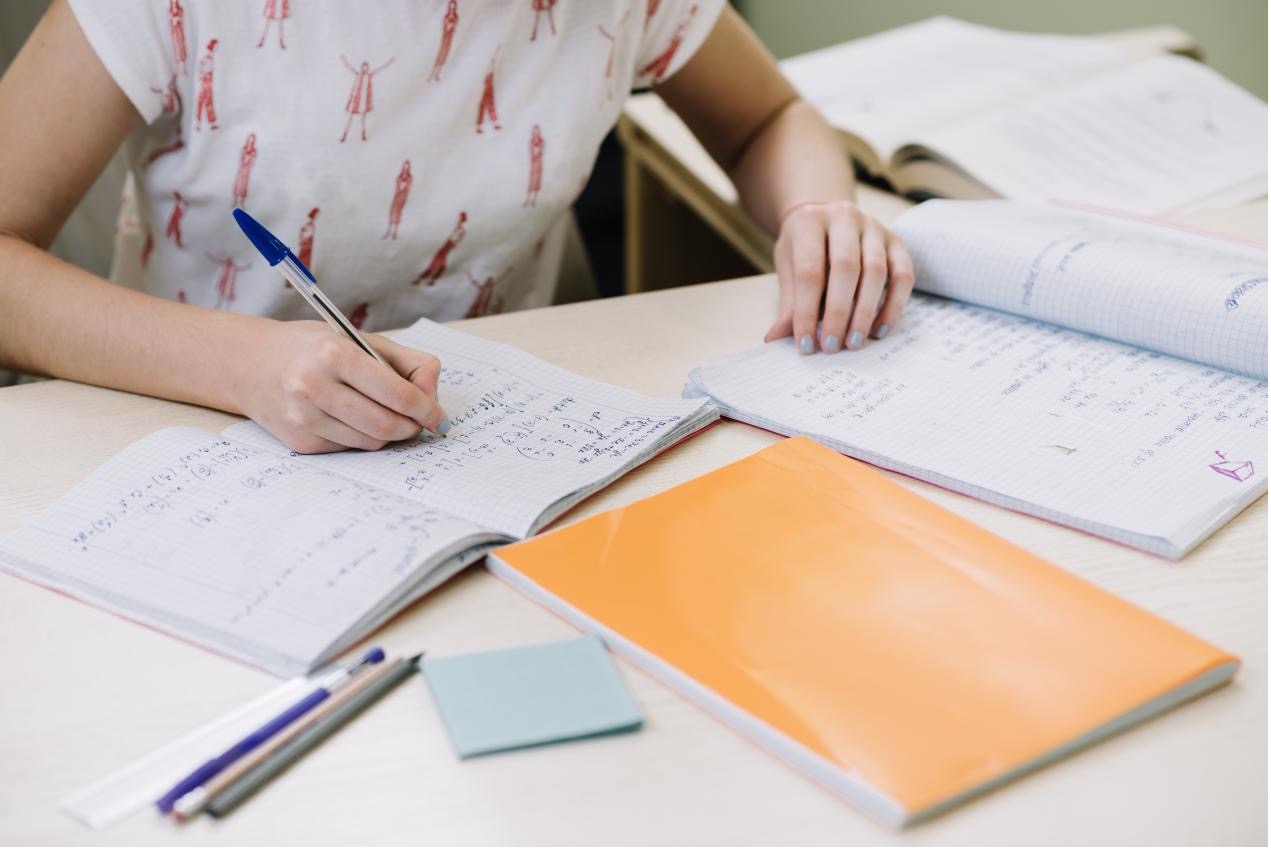Say No to Math Anxiety: Tips for students struggling with Math
2023.06.02
Although there are many kinds of math solver apps available currently, math can still be a challenging subject. It's common for a lot of students to feel nervous or stressed out when it comes to math. If you're one of them, it's important to know that you're not alone, and please believe that math is not invincible. This article will share some strategies to help you learn math more effectively. After reading it, you may face math assignments and exams with more confidence.

Don't neglect your math class.
The textbooks can be pretty obscure. But if someone tells you the ins and outs of them and gives you some examples, you may be able to comprehend them well. Your math class is such a great opportunity, so don't let it go to waste.
Pay attention to the key points marked by your teacher. This is not only to cope with the exam but also to strengthen your mathematical foundation. You can also hold a proper discussion with your classmates. Maybe you will gain something fresh and different.
Complete your homework with attention.
Never discount your homework. Your homework is usually tied to the content of the class, so it is the most intuitive way to monitor your learning achievements of the day. Even if your course doesn't require it or gives it extra credit, you should take it seriously.
Don't put off doing your homework so you can finish it while the knowledge is still fresh in your memory. This not only helps you complete your homework more efficiently but also makes it easier for you to see where your doubts lie.
If you encounter something you can't understand, seek help from your teacher immediately, or take full advantage of online resources. Watching tutorial videos or using homework tools like CameraMath are both good choices. Don't let your doubts pile up.

Formulate and implement a reasonable plan.
Math has a vast knowledge system, which includes many branches such as algebra, geometry, calculus, and more. You need to know where your weak spots are and make that a top priority in your study plan.
Each goal can be broken down into more specific, more achievable ones. You can change "I want to improve my accuracy on geometry problems" to "I’ll spend 30 minutes every day doing some geometry problems on my own until I can get them all right". Completing tiny goals can give you a sense of accomplishment, which will boost your confidence in math.
Learn from your mistakes.
In the process of learning math, it is quite normal to make mistakes. The important thing is not to be afraid of mistakes, but to use them as an opportunity to learn and improve.
Of course, it's not enough to just revise the answer. Facing a wrong question, you need to clearly understand why it is wrong. Is it a calculation error because of your carelessness? Or do you lack a thorough understanding of the knowledge points involved? Or are you just temporarily incapable of solving this problem? Only when the cause is found can corresponding measures be taken to remedy it.
Final words
If you're struggling with math and don't think you're gifted at it, please don't fret. Actually, most students realize the progress of math through acquired efforts.
You need to start with class and after-school assignments to lay a solid foundation, and formulate an implementable study plan based on your weak points. Also, don't be afraid to make mistakes. Use your mistakes as a learning resource and you will gain a lot.
More Articles
Copyright © Fooyoh.com All rights reserved.